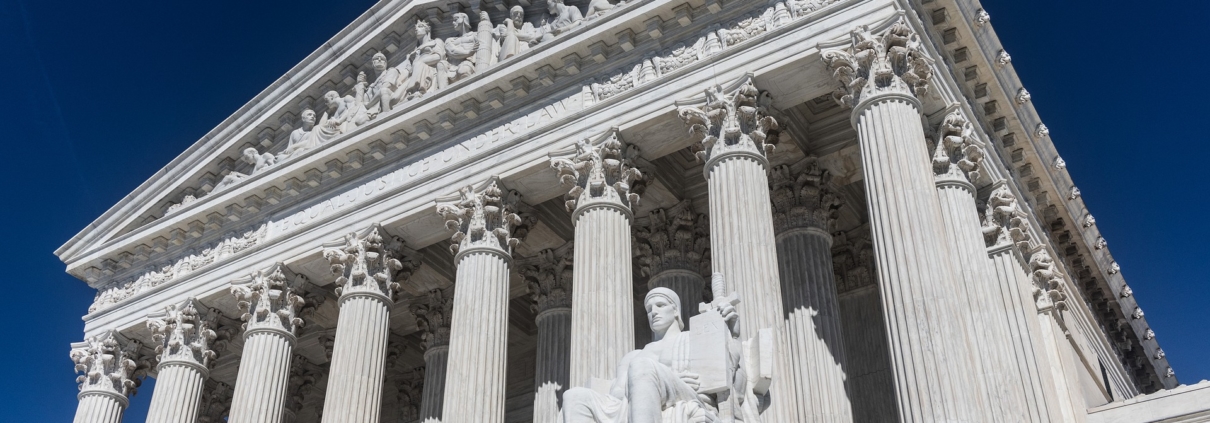Key Points on Supreme Court’s Bostock Ruling on Sex Discrimination
The Cardinal Newman Society hosted a webinar on June 17, 2020, for Catholic education leaders, in which Gregory Baylor, senior counsel and director of the Center for Religious Schools at Alliance Defending Freedom, offered a brief assessment of the June 15th Supreme Court ruling in Bostock v. Clayton County, Georgia. The following summarizes our understanding of what we learned from that webinar and other experts. Educators should consult their attorneys for professional legal advice.
Ruling: “An employer who fires an individual merely for being gay or transgender violates Title VII,” the federal law banning employment discrimination in categories including sex.
Definition of “sex”: The Court did not explicitly reject the understanding of “sex” as male and female, as some activists hoped. It is therefore incorrect to say that the Court “redefined sex” to include multiple “genders.” The Court found that identification as homosexual or transgender is a matter related to biological sex, and so they fall within the scope of sex discrimination. The Court did not address “other genders” or uncertain gender.
Scope of sex discrimination: Previously the Court has interpreted Title VII to forbid only adverse discrimination that is unwarranted and a double standard for men or women. But this ruling finds that homosexuality and transgender identification are protected categories, even though employment standards be applied equally to men and women.
Status vs. conduct: The Court ruling fails to distinguish homosexual or transgender inclination or identification from expression and conduct—a distinction that is central to Catholic teaching.
Statutory: The ruling interprets Title VII but identifies no new constitutional rights.
Religious exemption: Title VII includes an exemption for a “religious corporation, association, educational institution, or society with respect to the employment of individuals of a particular religion…” This should allow a Catholics-only hiring policy, but not every baptized Catholic is a suitable employee. Unless the exemption is strengthened, it is uncertain whether courts will allow moral and doctrinal criteria for employment, which are essential to faithful Catholic education.
Education law: Title VII has tended to guide interpretations of Title IX (on sex discrimination in education), but the Title IX religious exemption is much stronger. Although not required, several institutions have obtained prior determinations from the Education Department that they are exempt; those that have not should weigh the merits of doing so, while there is an administration that is favorable to the granting of such exemptions. COVID relief loans under the Paycheck Protection Program put schools and colleges under Title IX until the loan is forgiven or returned, but Baylor sees little reason for changing direction on PPP loans. Sex discrimination is not a statutory barrier to Title IV funding.
Legal defense: A Catholic school or college that is charged with illegal sex discrimination may have recourse to the following defenses.
Religious exemption: As noted, religious exemptions in Title VII and Title IX.
Ministerial exception: This will not cover all employees. A Supreme Court ruling on its scope is expected this month. The exception is not statutory; it is based on the First Amendment.
Religious Freedom Restoration Act: Must prove that a government action is a “substantial burden” on religion; seems to apply here, but courts may disagree. Government must then show that it could not achieve its purpose in a way that is less burdensome to religion.
First Amendment: Arguments for free exercise of religion, freedom of association, freedom from compelled speech.
Recommendations:
Strengthen Catholic identity: Firmly ground all policies in Catholic teaching and explain in writing why policies are necessary according to religious beliefs. Baylor cautions against the opposite strategy: laying low and downplaying Catholic identity, which weakens a religious freedom defense. Explicitly state expectations for employees and what will happen if violated. Always justify policies according to Catholic beliefs.
An institution’s religious identity, under the law, is whatever the institution declares to be its own deeply held beliefs. A “Catholic” label is neither enough nor necessary. Put into writing the school or college’s Catholic beliefs, especially those that are likely to be challenged, and clearly identify authoritative sources of the school’s beliefs (such as Catechism of the Catholic Church).
Nondiscrimination policies: Avoid listing any protected categories, but especially do not include sexual orientation or gender identity. Do not promise nondiscrimination on “religion”; declare your legal status as a religious entity with freedom to make decisions based on religion.
Employee benefits: Check employee benefits to ensure no support for “gender reassignment,” same-sex marriage, etc. Any compromise can weaken a religious freedom defense.
Language: Clarify language in all policies, especially employment documents, that is vague, confusing, or in conflict with Catholic teaching regarding sexuality and gender.
Lobby Congress: Consult your legal counsel; generally nonprofits can lobby on matters that directly affect them. Urge Congress to protect religious education and, if possible, to amend law to reverse Bostock ruling. Oppose Equality Act, which is highly dangerous: would enshrine Bostock in law, embrace gender ideology, remove religious exemption, and end RFRA application to sex discrimination. Oppose Fairness for All Act, which would enshrine Bostock in law (an immoral law) in exchange for religious exemptions that are unlikely to survive.
Catholic Identity Standards Project: Please know that the Newman Society is working on policy standards to help Catholic schools and colleges stay firmly grounded in Catholic identity while establishing the best protection against legal threats. This work depends on the assistance of a large number of expert reviewers. If you would like to assist by commenting on draft documents, please contact Michael Kenney, director of the Catholic Identity Standards Project, at mkenney@cardinalnewmansociety.org.

